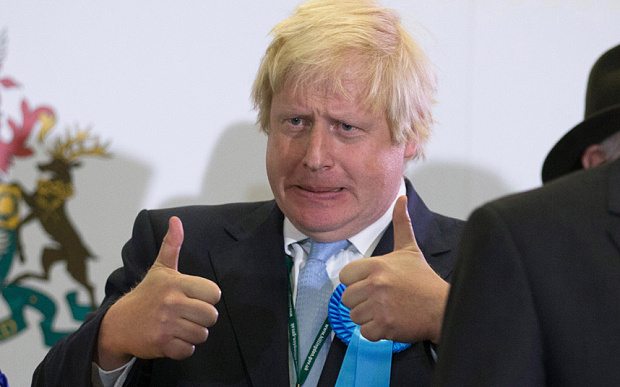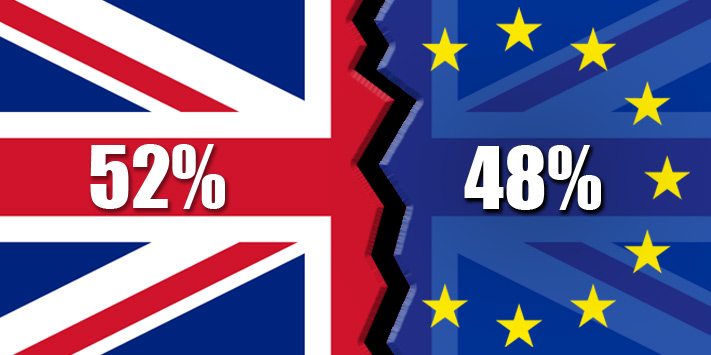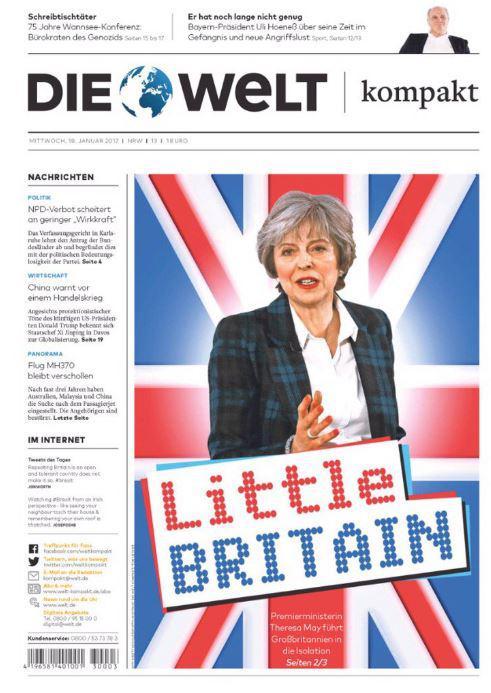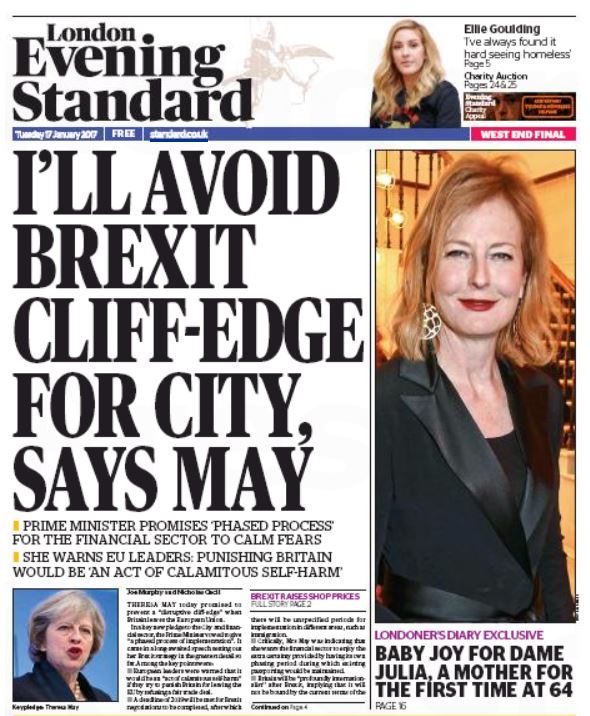
So Theresa May made clear on Tuesday what the Brexit plan is … or did she? Some say that her plan is Vague (in reference to her appearance on the cover of Vogue) whilst others gave it a big thumbs up.
Mind you, he did write most of it. The clear points that came out of her speech are the 12 objectives for Britain’s departure from Europe, namely:
- Provide certainty about the process of leaving the EU
- Control of our own laws
- Strengthen the Union between the four nations of the United Kingdom
- Maintain the Common Travel Area with Ireland
- Brexit must mean control of the number of people who come to Britain from Europe
- Rights for EU nationals in Britain and British nationals in the EU
- Protect workers' rights
- Free trade with European markets through a free trade agreement
- New trade agreements with other countries
- The best place for science and innovation
- Co-operation in the fight against crime and terrorism
- A smooth, orderly Brexit
Wonderful. That all sounds great, doesn’t it? Unless you’re a member of the opposition or a European.
Liberal Democrat leader Tim Farron accused Mrs May of a theft of democracy. He said: “She claimed people voted to leave the single market. They didn’t. She has made the choice to do massive damage to the British economy. The people voted for departure, they should be given a vote on the destination.”
I agree with him, and find it pretty appalling that a 1.9% majority is viewed as a mandate to make the biggest sea change to our economy in over half a century. This goes back to the referendum that should have stipulated that a majority is, let’s say, over 60% as 51.9% seems marginal to me. Thank heavens I’m not in Ireland or Scotland where a significant majority voted to Remain.
Labour leader Jeremy Corbyn said the prime minister “needs to be clearer about what the long-term objectives are” and that “there seemed to be an implied threat that somewhere along the line, if all her optimism of a deal with the EU didn’t work, we would move into a low-tax, corporate taxation, bargain basement economy on the offshores of Europe.” In other words, we would undermine European markets through low tax incentives to corporates.
Many Europeans felt that this was an implied threat, with several European politicians taking to Twitter to express their thoughts. Jan Philipp Albrecht, a Green MEP for Northern Germany:
#May: Go fuck yourself EU but please don't let us down. *whine* *whine*
— Jan Philipp Albrecht (@JanAlbrecht) January 17, 2017
Adding:
Sad: Everything what #May tells her British people to achieve would be possible inside the European Union but will be daydreams outside it.
— Jan Philipp Albrecht (@JanAlbrecht) 17 January 2017
Sylvie Goulard, a French Liberal MEP, said that “blackmailing partners is never a good thing”, while Irish MEP Brian Hayes said: “Amazing after six months of dithering. Brexit is ten years plus away.” Kathleen Van Brempt, a Belgian socialist, tweeted: “The European Union is not a menu where the UK can freely pick and choose to their liking.” EU Council president Donald Tusk said it was a “sad process” and “surrealistic times”.
Similarly, the European press were not so hugely impressed.
And I guess no wonder, when our Foreign Secretary compares the French President, Francois Hollande, with a Second World War Nazi guard.
Meanwhile, the City reacted in various ways.
Major law firm Clifford Chance said that pulling out of the European single market will have “serious” implications for the City of London. Simon Gleeson, regulatory partner at the law firm, said he believed it would "not be fatal”, largely because London would remain Europe's financial centre in the short term. But long term?
Stuart Gulliver, CEO of HSBC, speaking to Bloomberg at Davos said: “Activities specifically covered by EU legislation will move, and looking at our own numbers, that’s about 20% of revenue.” Similarly, UBS's head of investment banking, Andrea Orcel, said at Davos that they were already planning to move jobs to Frankfurt or a similar location, and the only question is: how many jobs? Well, UBS Chairman Axel Weber clarified with the BBC: about 20%.
US banking giant JP Morgan said 4,000 jobs would leave the UK, and Goldman Sachs are discussing a move of 2,000 roles if Britain loses passporting rights. All in all, if these numbers are anything to go by, then the long-term impact will be 20% of City jobs move from London to Paris or Frankfurt across the whole banking sector. Or to Dublin of course, as that’s in the EU. That's going to be a major hit to the UK economy in terms of not only lost revenues but lost taxes, as 30,000+ City bankers moved to Europe = around £5 billion worth of lost tax revenues.
And how long will all of this take? Well the Supreme Court will make a decision next Tuesday as to whether Parliament has to vote on the plan before we trigger Article 50, which could delay things, but assuming Parliament says yes, then it's two years to agree the exit structure and a further two years to implement the exit agreements. So we're out by 2021.
Perhaps, in summary, the best insight into the whole shambolic affair came from Mark Boleat, Policy chairman of the City of London Corporation. Writing a lead article in the Evening Standard, Mark outlines the best and worst case scenarios for the City:
The best-case scenario, according to one estimate — where negotiations secure trading rights with the EU similar to those the UK currently has — would likely see an annual decline of £2 billion in revenues, £0.5 billion in tax revenue and 4,000 jobs. By contrast, under conditions where the UK moves to a third- country arrangement with the EU, without any regulatory equivalence, and its relationship with the EU is defined by WTO terms, up to 50 per cent of EU-related activity (£20bn in revenue) and 35,000 jobs could be at risk, along with £5bn of tax revenues a year.
However, there would also be the loss of related activities. An estimated further £14-18 billion of revenue, 34-40,000 jobs and around £5 billion in tax revenue a year could be at risk. So a worst-case scenario may be 20 times worse than the best.
Oh dear …
Chris M Skinner
Chris Skinner is best known as an independent commentator on the financial markets through his blog, TheFinanser.com, as author of the bestselling book Digital Bank, and Chair of the European networking forum the Financial Services Club. He has been voted one of the most influential people in banking by The Financial Brand (as well as one of the best blogs), a FinTech Titan (Next Bank), one of the Fintech Leaders you need to follow (City AM, Deluxe and Jax Finance), as well as one of the Top 40 most influential people in financial technology by the Wall Street Journal's Financial News. To learn more click here...




